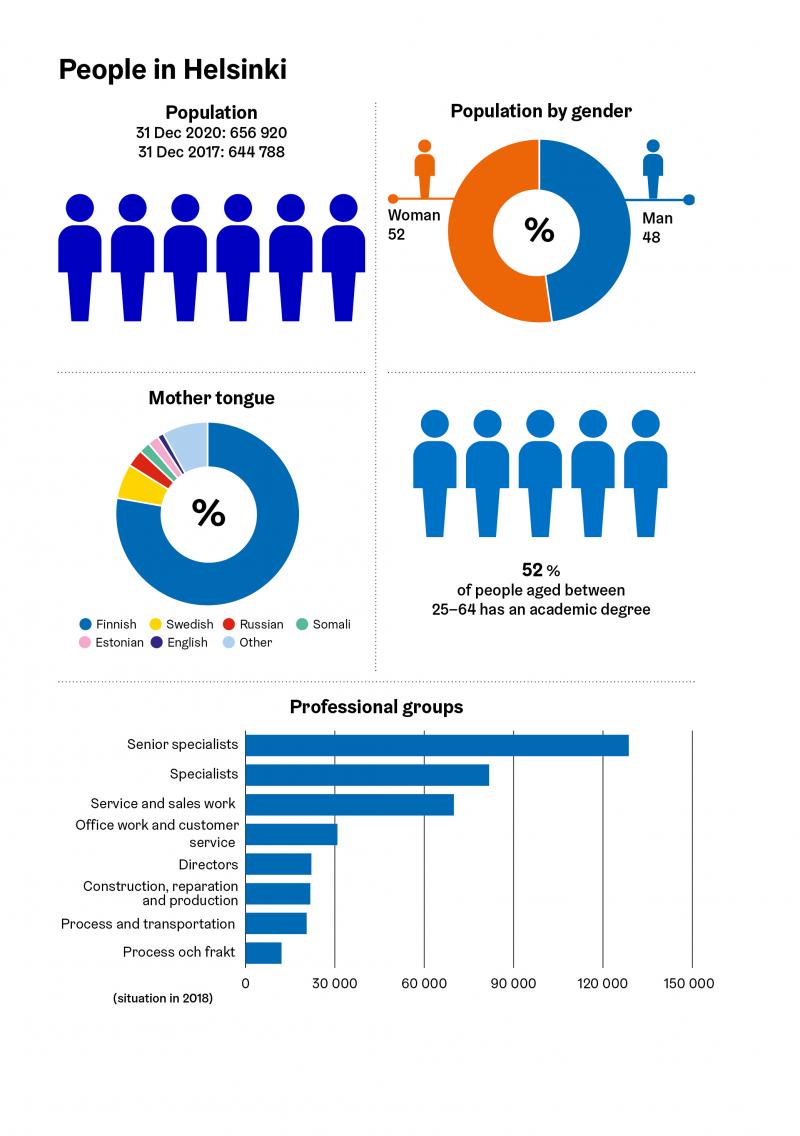3. Introduction
The strategy adopted by Helsinki City Council in 2017 was subtitled ‘The Most Functional City in the World’. This vision is mirrored in the five strategic priorities through which the goal of becoming the most functional city in the world is being pursued. According to the strategy, a functional city is based on trust. The city’s strategic intent is to do things a little bit better every time, in order to make the life of Helsinki’s residents easier and more pleasant. A functional city means concrete actions and choices that make everyday life smoother for residents. Being a functional city is a path for Helsinki to create advanced everyday life.
With these goals in mind, it makes sense to evaluate the success of the strategy against the five strategic priorities and the around 50 objectives and approximately 140 performance indicators adopted by the City Board on the basis of the priorities. The indicators make it possible to evaluate success and impact on a qualitative level.
While it is impossible to measure the success of the vision itself in any meaningful way, an assessment based on the performance indicators reveals at least the strengths and weaknesses discussed below.
Good progress has been made towards securing sustainable growth in respect of reforming Helsinki’s urban structure and housing as well as meeting emission reduction targets. There is still work to be done to increase the vitality of the city centre and individual neighbourhoods, and the wider implications of the emissions reduction programme also need attention.

Regarding developing services, a more customer-orientated approach has been adopted for basic services by increasing the provision of, for example, local early childhood education and basic education, home-based support services for the elderly and opportunities for physical exercise. The pace of digitalisation has also accelerated.
Apart from not hitting the productivity target, the city succeeded in the responsible management of finances during the first part of the present Council’s term of office. The impact of the coronavirus pandemic is making economic targets more difficult to achieve, and indebtedness is likely to increase despite the responsible financial management in earlier years having given the city every chance to come out of the crisis relatively unscathed.
In respect of efforts to promote Helsinki’s interests, the operating model, effectiveness and city-level coordination have improved. Cooperation with other Finnish towns and cities has increased considerably. Helsinki has successfully raised its international profile. More work is still needed to solidify and streamline the operating model in the rapidly evolving external environment.
